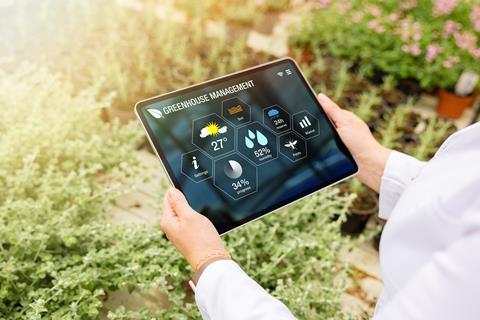Rabobank report says AI offers value in sustainability, quality, better working conditions and price
A new report from Rabobank has said that the market for robots and artificial intelligence (AI) in greenhouse horticulture represents ”enormous potential value” in terms of sustainability, a higher-quality harvested product, better working conditions, and a higher product price.

“Robotics and AI are not panaceas for solving labour shortages or other product-related problems,” said Cindy van Rijswick, global strategist – fresh produce at Rabobank. “But in the next decade, robots and crop support software will take over certain tasks in the high-tech greenhouse.
“Growers will not produce more cheaply because of robotisation and digitalisation, but mostly differently,” she continued. ”Managing larger, more international companies will become easier, management skills will change, and the cooperation with suppliers and customers will become closer.
”Pests can also be dealt with earlier, more sustainably or more precisely. The quality of the final product may also improve. All of this has great potential value that is difficult to estimate.”
Lack of, and high costs of, labour are a major driver of robotisation, the report said. The cost of labour and management in high-tech greenhouses is about €150,000-€250,000 per hectare, or about €13bn worldwide.
The knowledge and skills of horticultural companies were indispensable in developing robots and AI and, for robotics players, connecting with the right growers, quickly adapting products based on experience, service and convenience were success factors.
“There are several options for growers to adopt innovations in robotics and AI,” van Rijswick added. ”From really co-investing in the companies to cautiously trying them out using a (trial) subscription.”
In the more distant future, a completely different automated cultivation system is a smarter solution for certain crops, the report outlined. But this requires substantial investments and many adjustments, for example in the varieties used.
Robotisation and digitalisation also had potential drawbacks, Rabobank confirmed.
”Consider the growing dependence on large software companies, cyber risks, less flexibility, negative consumer perception, and less diversity of companies and products.”



